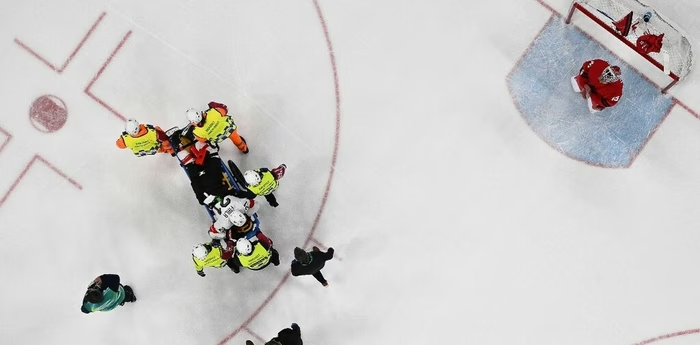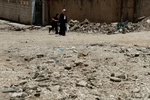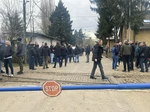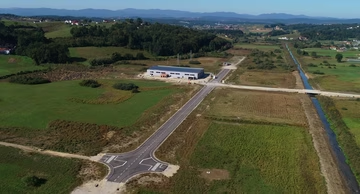
Support for EU membership in Southeast European countries has been falling because those countries believe the EU does not want them, but there are partnership programmes to enable those countries to participate in matters of common interest, like the Green Deal and digitalisation, EU Special Representative Miroslav Lajcak said.
Some of those countries have departed from European norms and values, and that, too, has generated enlargement scepticism. The EU has also gone through multiple unexpected crises such as the financial crisis, migrations and Brexit, and all of that has pushed enlargement down on the list of the EU's priorities, the Slovak diplomat, who is the EU's Special Representative for the Western Balkans, said in an interview with Hina.
Lajcak was speaking to Hina in Greece, where he was attending an economic conference in Delphi.
It was during the Greek EU presidency two decades ago that the EU promised membership to Montenegro, Serbia, North Macedonia, Albania and Bosnia and Herzegovina. Spain, which supports those countries' EU membership aspirations, will take over the EU's six-month rotating presidency on 1 July.
Unlike Central European countries, Western Balkan countries are still occupied with unresolved issues from the past, Lajcak said, noting that for his country and other Central European countries, integration with the EU had been an absolute priority, which was why they had been entirely committed to achieving that goal.
Lajcak, a former Slovak foreign minister, is also the EU's Special Representative for the Belgrade-Priština Dialogue.
Serbia, which does not recognise Kosovo's independence, declared unilaterally in 2008, has opened 22 of 35 policy chapters in its EU accession talks but closed only two.
North Macedonia was first blocked by Greece over its name, and when it added the prefix "North" to its name, it was blocked by France ahead of local elections in that country, and later by Bulgaria, which disputes North Macedonians' national identity and language. It was only in 2022 that the EU launched accession talks with North Macedonia and Albania.
Lajcak said he did not want to speak in terms of anybody's guilt, but he noted that there were factors both on the part of the EU as well as on the part of the Balkans that had led to the present situation in which the future of the EU was being discussed but without any progress.
However, after Russia launched a war of aggression against Ukraine, we have realised that both the EU and the Balkans must take enlargement seriously, he said.
BiH complex case, Montenegro leads the way
Bosnia and Herzegovina obtained candidate status in December 2022.
Lajcak, who served as the international community's High Representative in Bosnia and Herzegovina between 2007 and 2009, said that the situation in BiH was still very complicated.
The fundamental issue is the responsibilities and powers of the state and the entities. There are different interpretations in that regard in Sarajevo and Banja Luka and numerous disagreements based on those differences, he said.
Pointing to the importance of dealing with the functionality of the state, Lajcak said that there have been some positive developments and that after the October 2022 elections, the country's government was formed faster than after the previous elections. He noted that it is important for all three constituent ethnic groups to make decisions and that BiH must also find a role for those peoples that are not constituent peoples, to make sure nobody is discriminated against based on their ethnicity.
Speaking about Montenegro, which has made the most progress on the journey to EU membership and which last month elected Jakov Milatović its new president, Lajcak said he expected Montenegro to focus more on the European agenda than on itself.
Montenegro is still a leader in terms of EU integration even though the pace of the necessary reforms has slowed down significantly, he said, noting, however, that it is good that the functionality of the country's constitutional court has been restored.
Montenegro is set to have parliamentary elections in June.
Lajcak said he expects the new president and the new government to be fully committed to the process of European integration and to what the majority of the country's population wants.
Montenegro has been a factor of stability in the Balkans for a long time and I expect it to continue having that role, he said.
Zoran Miljanić, a minister in Montenegro's caretaker government, said at the Delphi conference that it would be optimal for Montenegro to join the EU in the next four years.
Predicting new enlargement rounds thankless task
Lajcak, on the other hand, believes predicting new EU enlargement rounds is a thankless task.
What I would like to see is for our partners in the Western Balkans to start participating more in EU partnership programmes and to be in the same room, not only when we discuss the Western Balkans but also when other topics are discussed, so they can see that we are serious about them, he said, mentioning in that context the EU's Green Deal and digital transformation.
Speaking of the existing structures that could enable the EU to draw the Western Balkans closer to itself, Lajcak mentioned the EU's macroregional strategies for the Adriatic and Ionian Seas and the Danube River.
Lajcak, who often visits Southeast European countries, says that he does not see that people living there do not want to be part of the EU.
But I have seen people who are afraid of the EU not wanting to see them in their membership. The EU definitely has a positive reputation in the region but support for European integration is falling, simply because people fear the EU is not being serious, he said.
That has to change. The EU must talk with the region more like a partner and lecture it less, Lajcak said.
Sometimes our language is too strict and bureaucratic when we talk about conditions. We must show respect for the region and its people and treat them like partners and be clear about what we are promising. When they deliver on something, we must deliver as well, Lajcak said, noting that he considers Croatia's role in the process constructive and expects Croatia to continue being a strong advocate of further EU enlargement.
Kakvo je tvoje mišljenje o ovome?
Učestvuj u diskusiji ili pročitaj komentare





 Srbija
Srbija
 Hrvatska
Hrvatska
 Slovenija
Slovenija



























































